Essential Oils For ADHD: 8 Essential Oils To Manage ADHD 2024

Attention-deficit/hyperactivity disorder or ADHD is a common condition affecting millions of children and adults[1] worldwide. While various conventional treatments are available, such as medication and therapy, some people prefer natural remedies like essential oils for ADHD symptoms.
Essential oils are aromatic plant extracts that are believed to offer a range of health benefits, including improved focus and concentration. In this article, we’ll explore the best essential oil benefits and how to use them to manage the symptoms of ADHD.
Top 8 Essential Oils For ADHD
Essential oils have the potential to help many people with their ADHD symptoms by providing increased energy and focus, as well as assisted relaxation when needed. The following essential oils could work for you:
- Vetiver oil.
- Lavender oil.
- Peppermint oil.
- Chamomile oil
- Ylang-ylang oil.
- Eucalyptus oil.
- Bergamot oil.
- Frankincense oil.
Do Essential Oils Work For ADHD?
While research on the effectiveness of ADHD essential oils is limited, some studies[2] suggest that certain essential oils may help manage symptoms. Still, take the claims with a grain of salt.
Essential oils are mostly helpful in small doses, but only when needed to avoid overuse. For example, use peppermint when you really need to focus,[3] but don’t fill your house with it constantly, or you may build up a tolerance and reduce its efficacy.
And keep in mind that for people with ADHD, some essential oils may even be overwhelming or distracting.
Best Essential Oils For ADHD
Vetiver
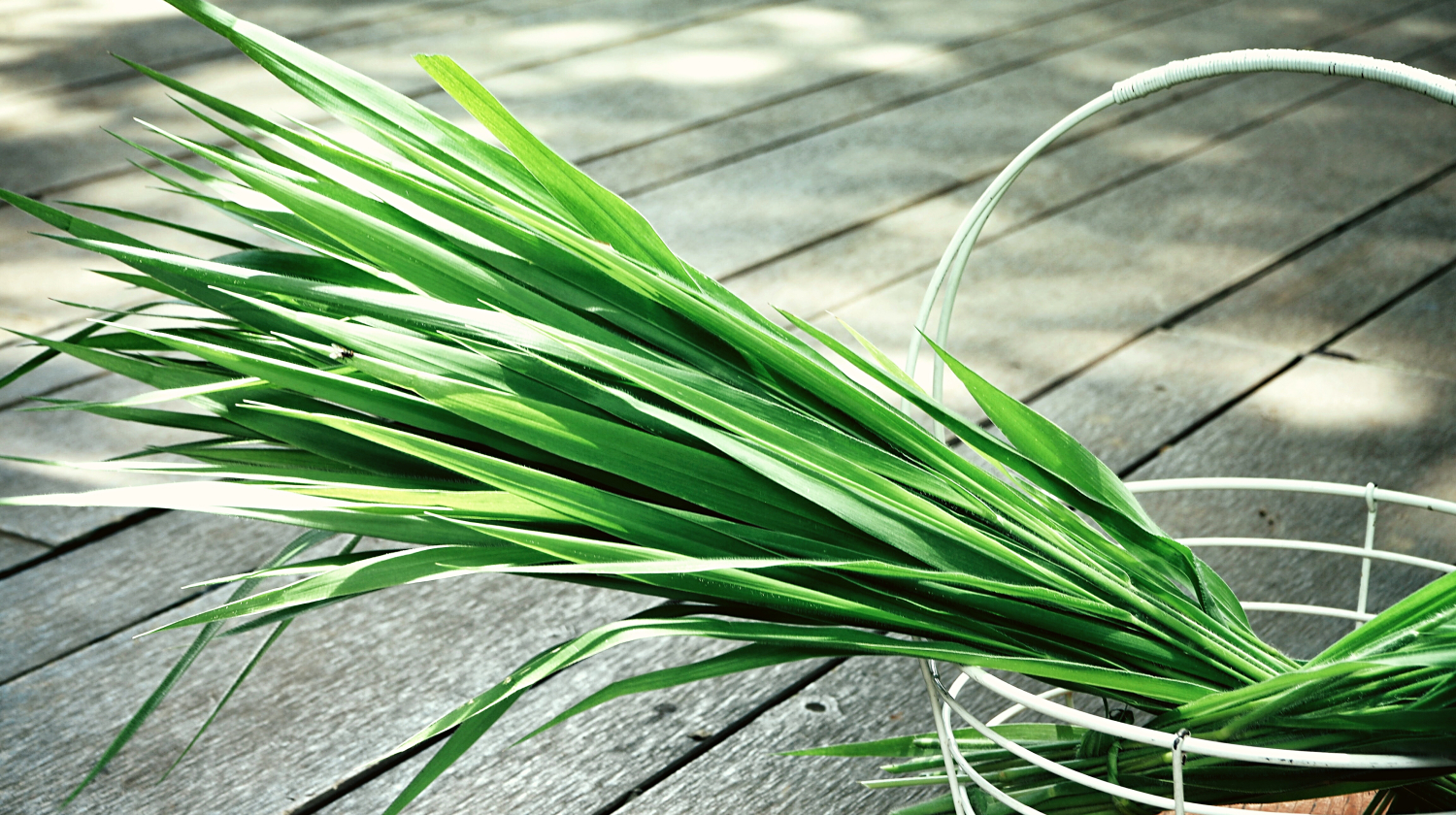
Vetiver essential oil is derived from the roots of the Vetiveria zizanioides plant and has a deep, earthy aroma. It usually has a grounding effect. Vetiver may not be as common as most other essential oils on this list, but it might be particularly useful in treating and managing ADHD.
A 2014 study published in Natural Product Research[4] found that vetiver essential oil was shown to reduce one pathway of anxiety in rats. This may also apply to the high distractibility of people with ADHD, calming them and grounding them in the moment.
To use vetiver essential oil, add it to a carrier oil such as jojoba or sweet almond oil and apply it topically to the skin. It can also be diffused into the air through a diffuser or inhaler. Vetiver essential oil inhalation can feel especially therapeutic.
Lavender
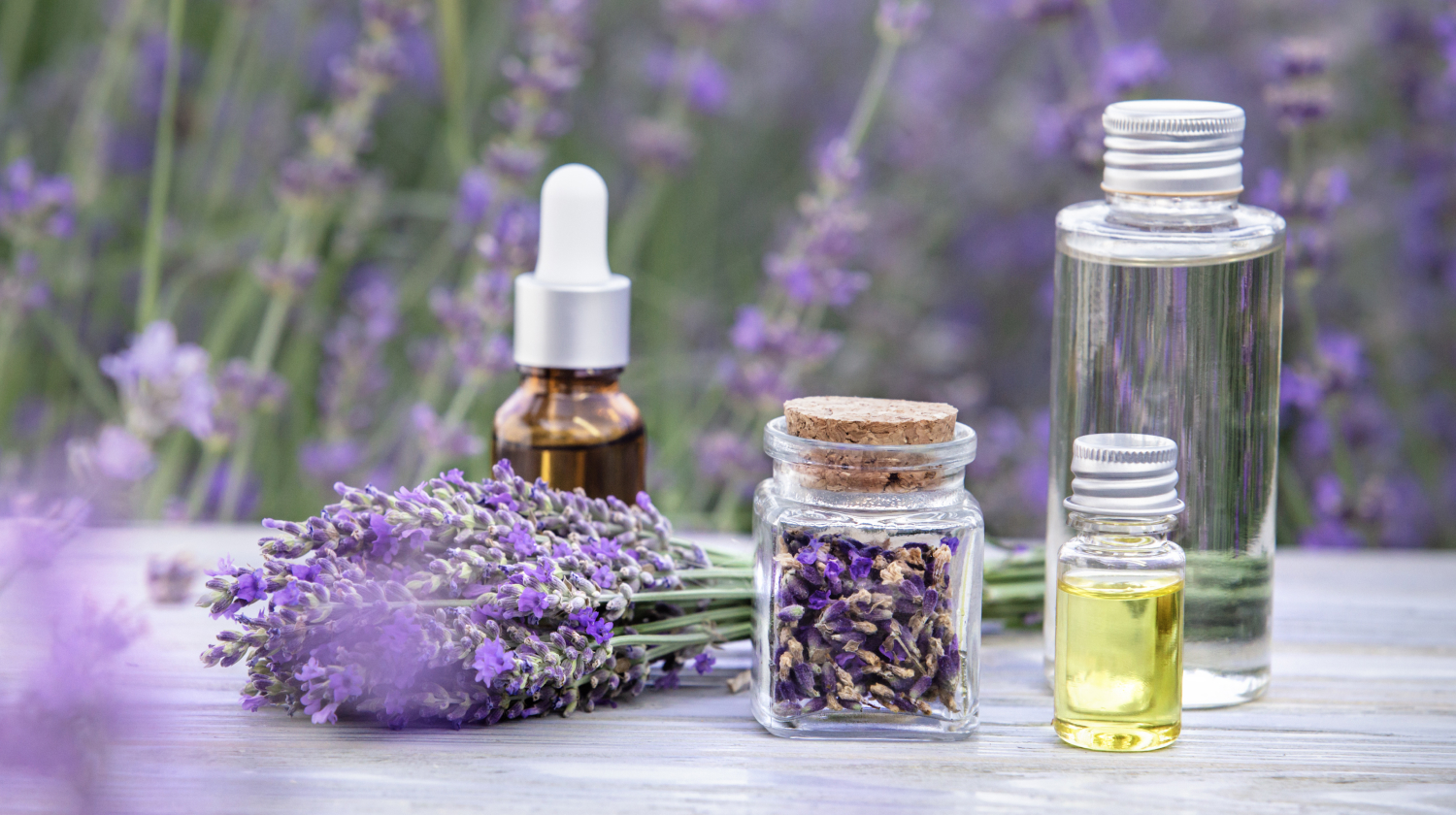
Lavender essential oil is one of the most popular essential oils used for a variety of purposes, including promoting relaxation and reducing stress.[5] It’s not just used in essential oils, either — lavender is in everything from shampoos to lotions to food.
Lavender essential oil can be diffused into the air or applied topically to the skin after being mixed with one or more carrier oils.
Peppermint
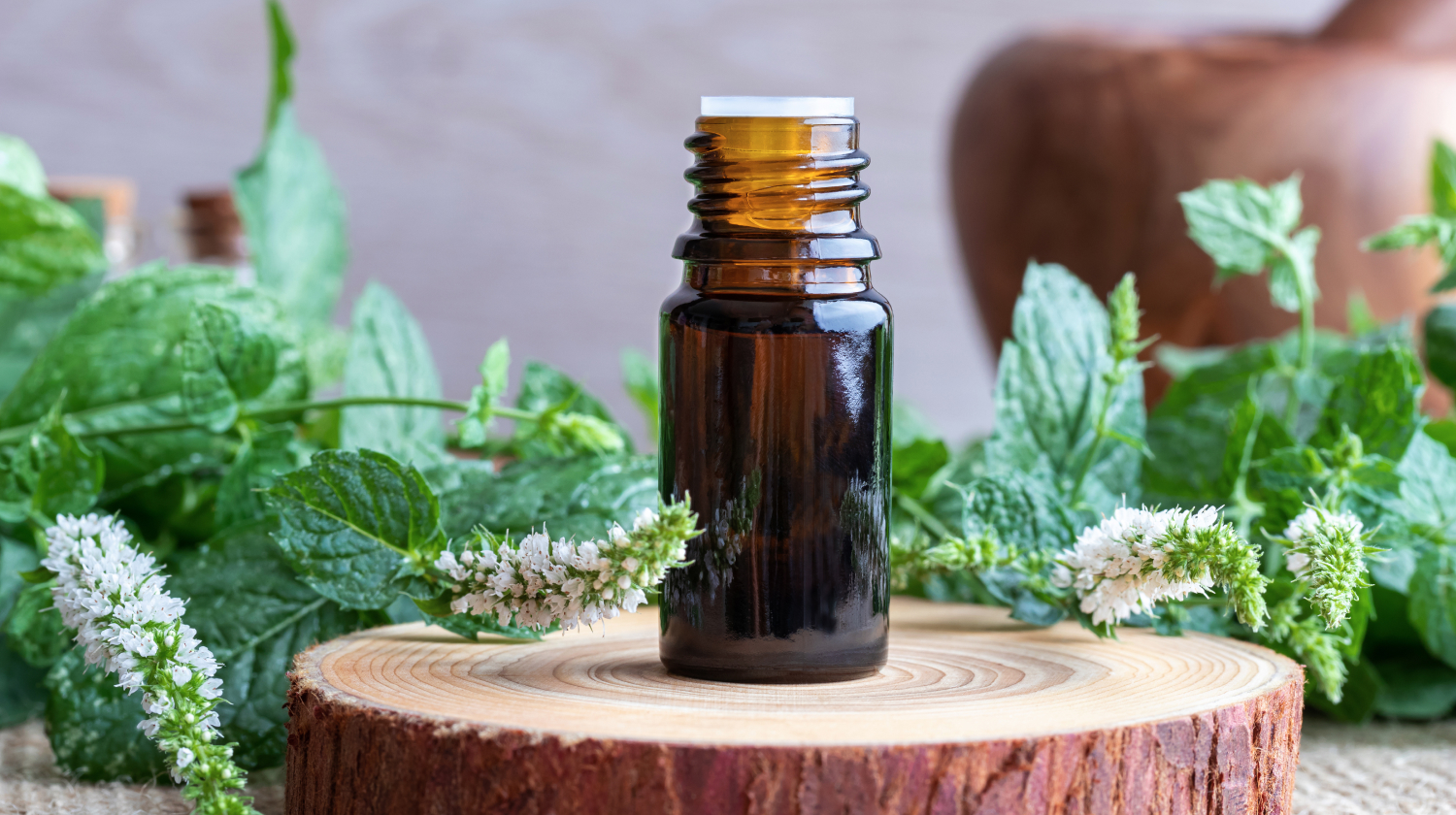
Peppermint essential oil is known for its invigorating and energizing effects and its refreshing scent.
A study published in the Avicenna Journal of Phytomedicine[6] found that inhaling the scent of peppermint oil increased alertness, response time, and cognitive performance. It also improves physical exercise, which may also increase alertness and energy. For people with ADHD, this may be the most useful essential oil — a dose of focus and energy.
To use peppermint essential oil, add a drop or two to a carrier oil and apply it topically to the skin or use an air diffuser. Keep in mind that peppermint is one of the strongest essential oils and can seriously damage the skin if not diluted, so using a carrier oil is vital.
Chamomile
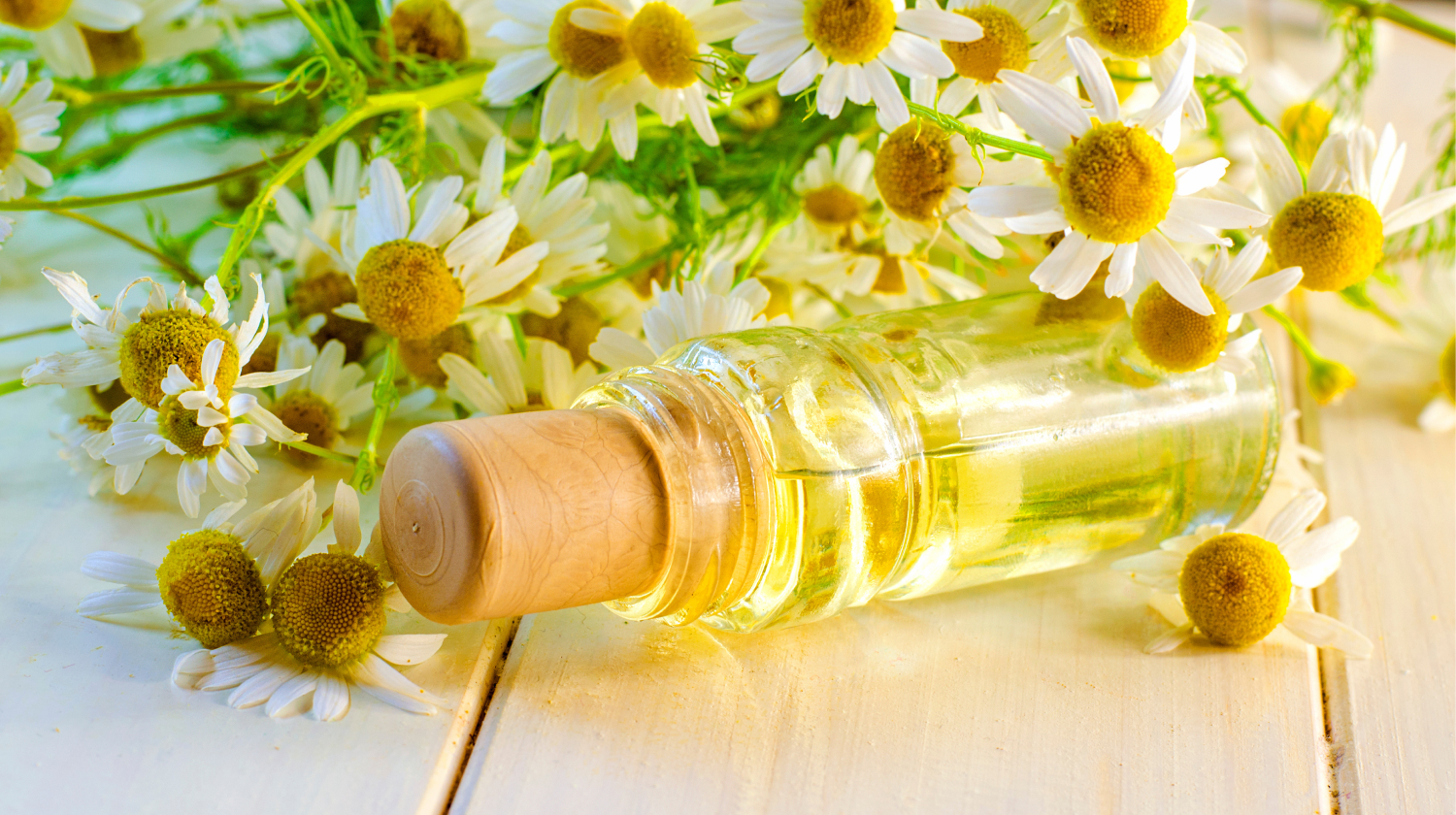
Chamomile essential oil has a sweet, floral aroma and is popular thanks to its calming effects. It also is often used to help people sleep.
While there is limited research specifically on chamomile essential oil and ADHD, it may be beneficial for individuals with ADHD who experience symptoms of anxiety or have difficulty sleeping. The running thoughts of a person with ADHD can make it difficult to fall asleep at night, and chamomile[7] can be an excellent natural remedy for this problem.
When using chamomile essential oil, it can be added to a carrier oil and applied topically to the skin or diffused into the air.
Ylang-Ylang
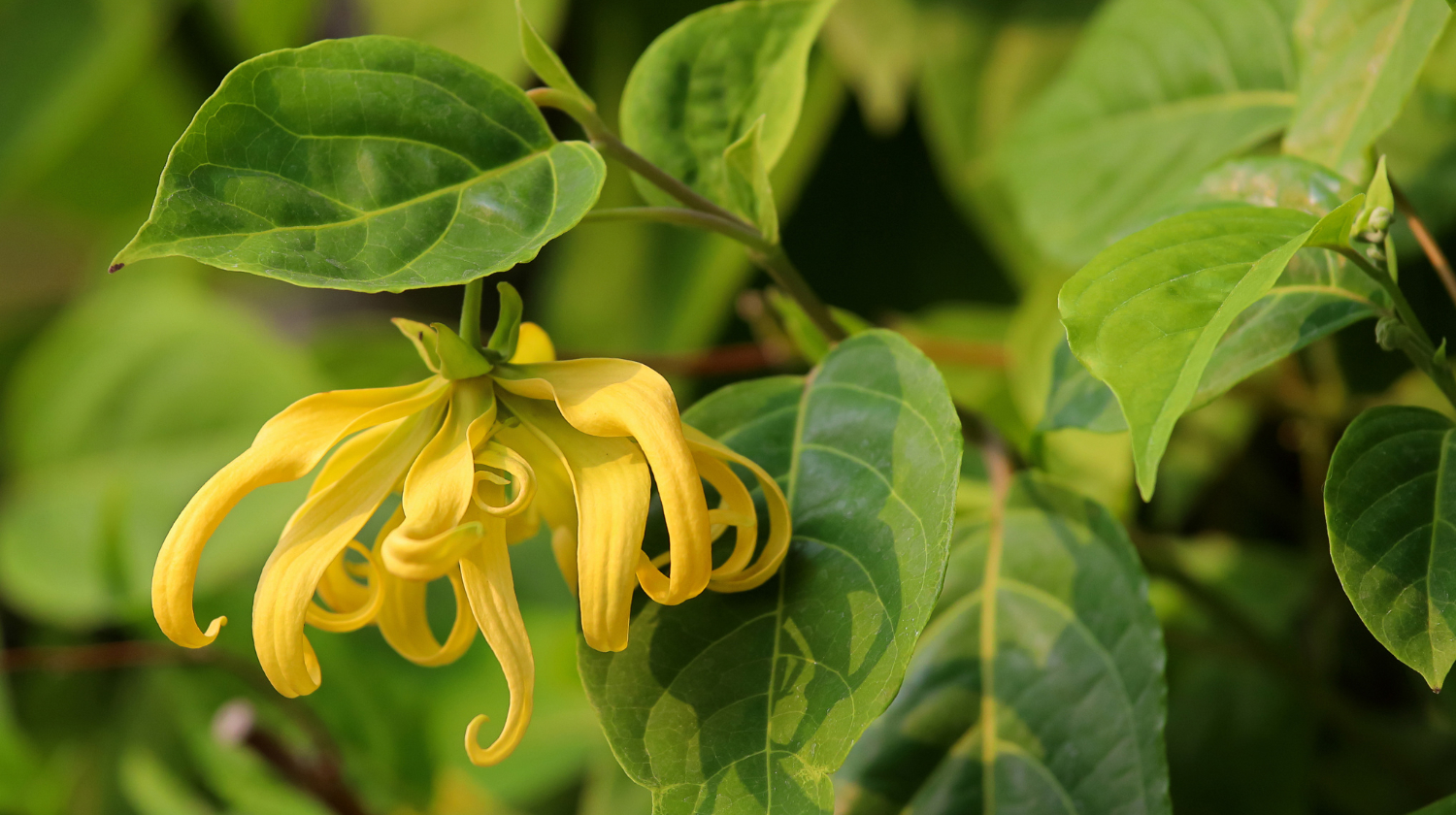
Ylang-ylang essential oil is derived from the flowers of the Cananga odorata tree and has a sweet, floral scent. While there is limited clinical research on the effects of ylang-ylang essential oil for ADHD, it’s believed to help with both depression and anxiety, according to a 2015 review[8] published in the Evidence-Based Complementary and Alternative Medicine journal.
While this isn’t directly applicable to ADHD alone, it may help those who also experience anxiety or depression. This peaceful, relaxing scent could help bring calm and focus. However, some people with ADHD may find its strong floral odor distracting.
Eucalyptus
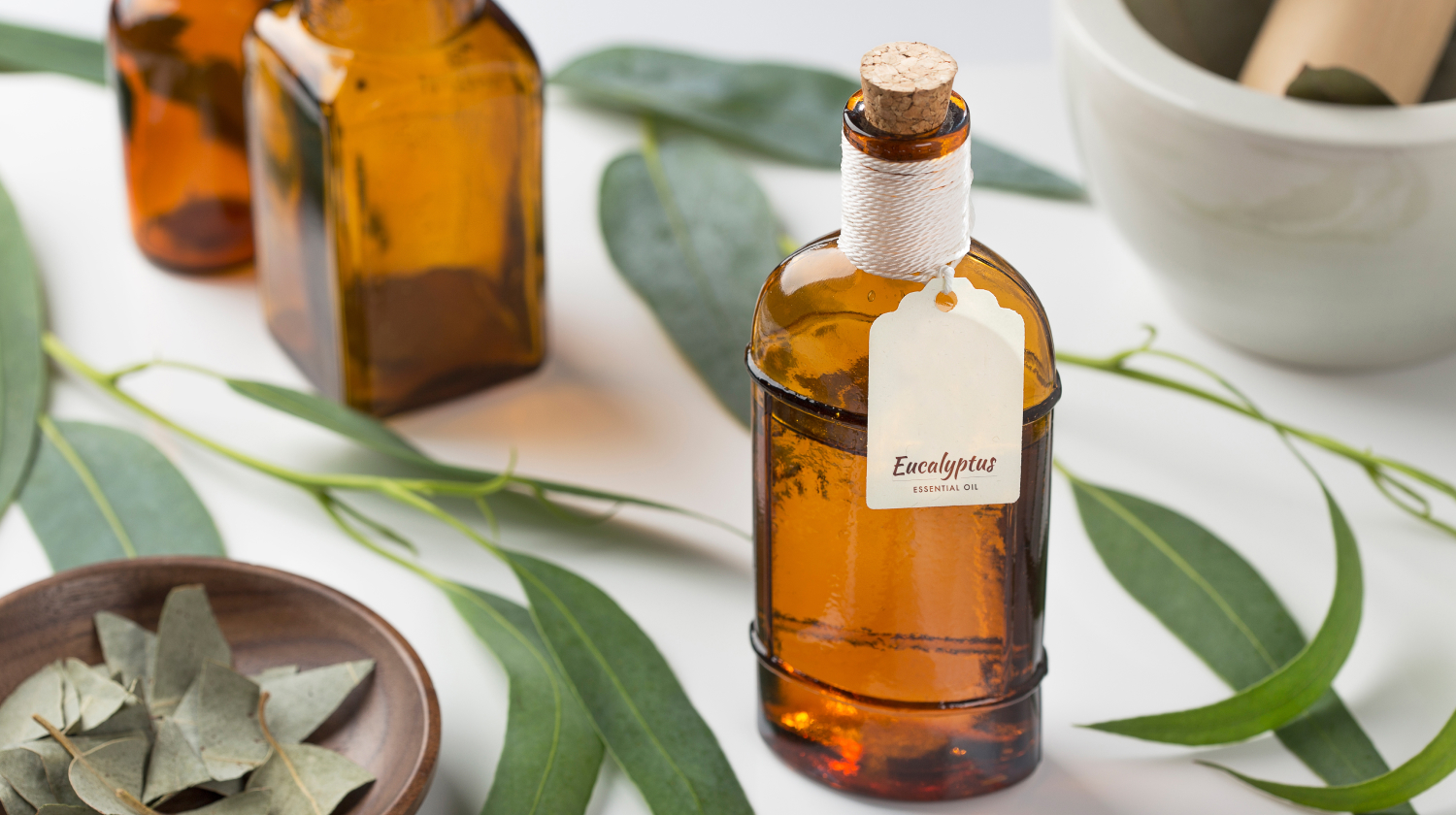
Eucalyptus essential oil is derived from the leaves of the eucalyptus tree and has a fresh, minty aroma. It’s a great choice to add to a bath since it is said to have soothing topical qualities.
This essential oil has been shown to have some pain-killing effects[9] on mice. This is one of the best essential oils for ADHD children since it’s lighter and less toxic than others, but make sure to dilute it more than you otherwise would if you plan to use it with children.
Bergamot
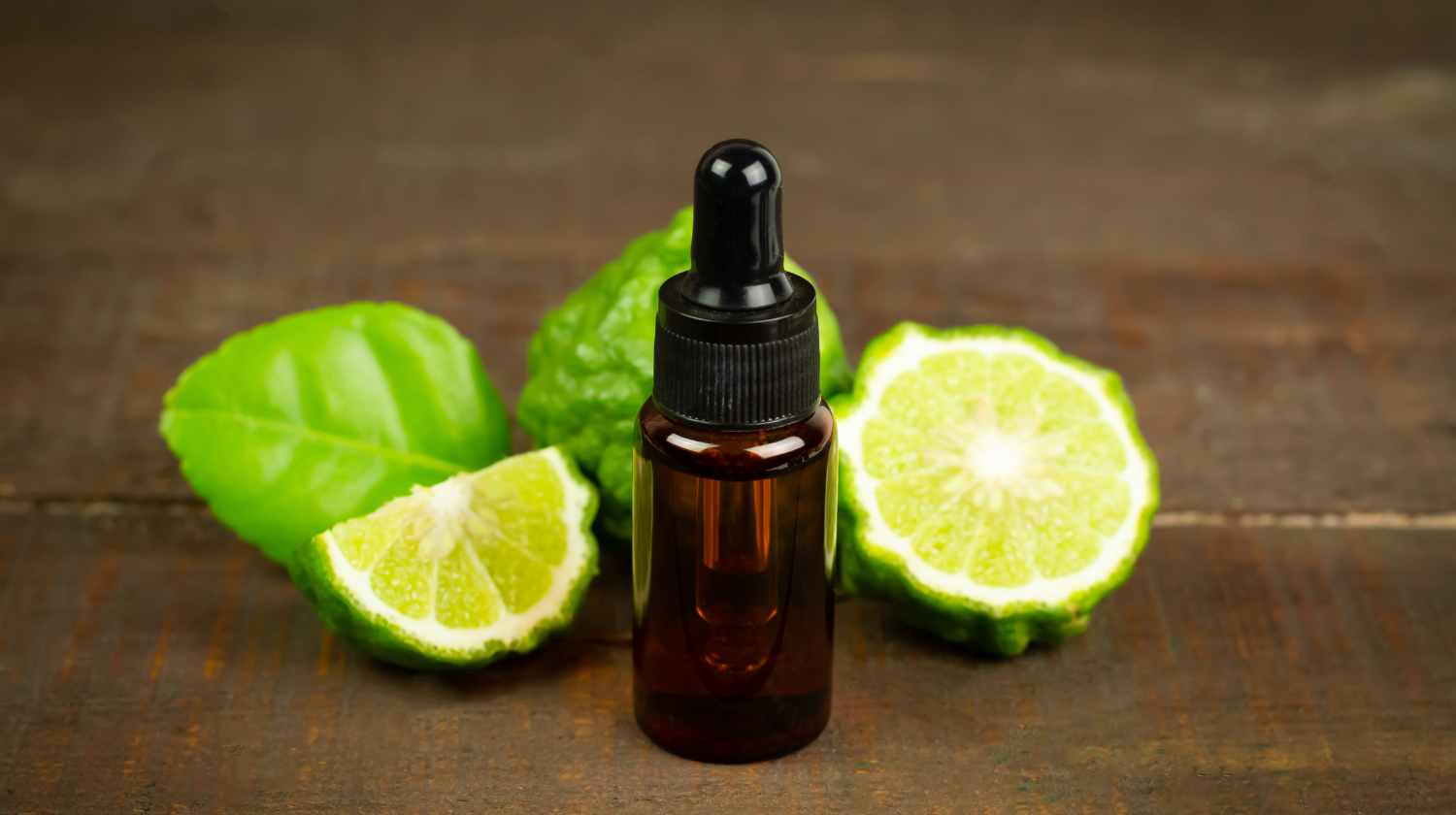
Bergamot essential oil is known for its citrusy, uplifting scent. It comes from bergamot, a fruit that’s a hybrid of lemons and oranges. It can help reduce stress and anxiety and improve mood, along with other similar citrus oils.
In a study conducted on rats,[10] inhalation of bergamot essential oil reduced anxiety-related behaviors. It’s useful for anyone, but people with ADHD might want some extra help regulating their mood.
Bergamot oil can be diffused or used topically, but it is important to avoid direct sunlight after topical application as it can increase the skin’s sensitivity to UV rays.[11]
Frankincense
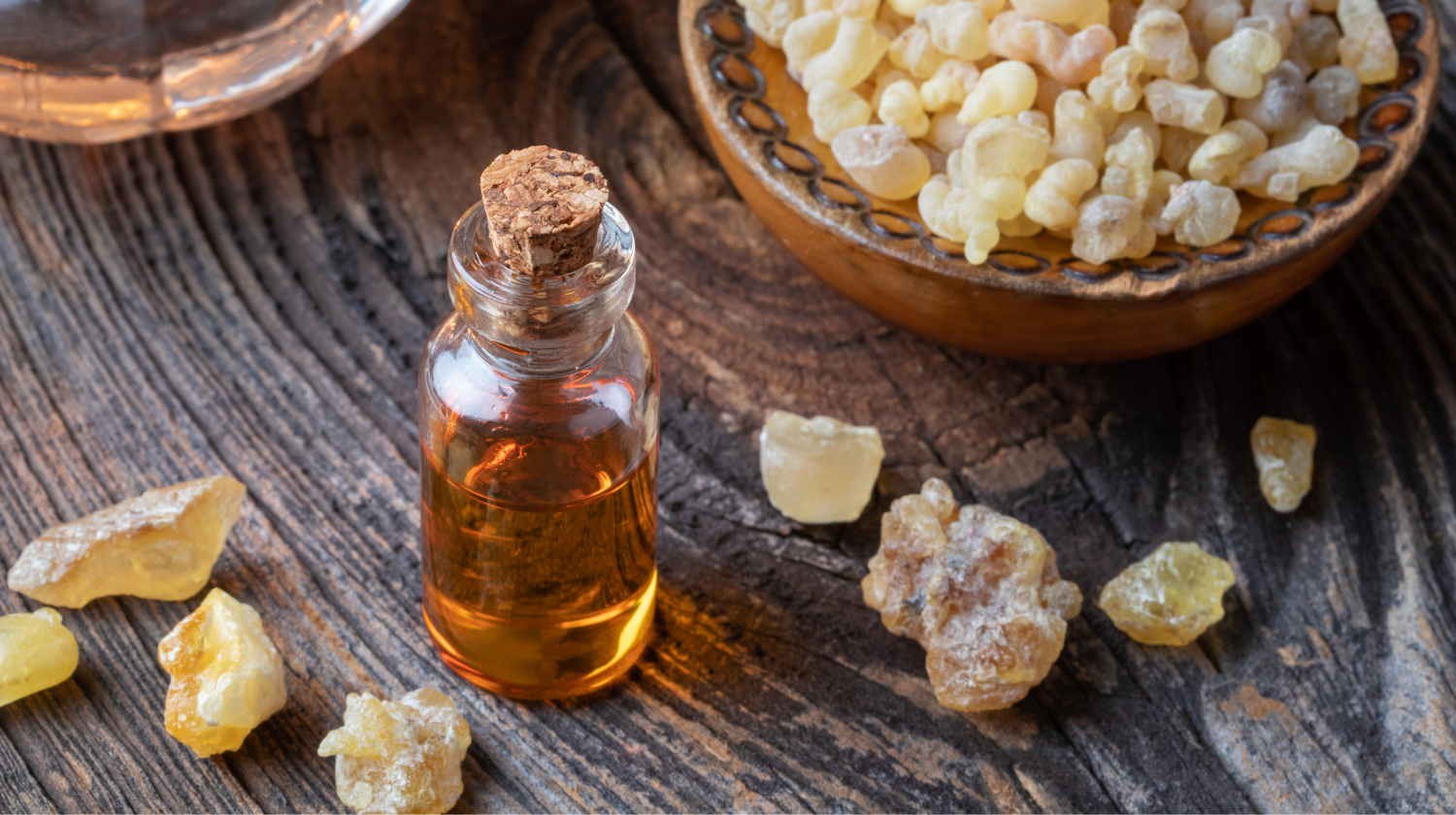
Frankincense essential oil has a woody, spicy scent and is commonly used in aromatherapy for its calming and grounding properties. It was shown to alleviate[12] anxiety-related behavior in sleep-deprived rats in 2019.
Frankincense oil is best diffused, and it smells wonderful. It’s also excellent applied topically, as long as it’s diluted with a carrier oil.
How To Use Essential Oils For ADHD
Essential oils can be used in a variety of ways to manage ADHD symptoms. They can be diffused in a room using an essential oil diffuser or applied topically after dilution with a carrier oil.
Some essential oils, such as peppermint and lavender, can also be inhaled directly from the bottle for a quick boost of focus or relaxation.
It is important to note that essential oils should be used with caution, as they can cause irritation or allergic reactions in some people. It is also recommended to consult with a healthcare professional before using essential oils as a part of ADHD treatment.
Some people with ADHD may also find that certain scents are more distracting instead of providing calm and focus, so try a variety of oils to find the best option for you.
The Bottom Line
While essential oils for ADHD may not be a cure, they can be a helpful addition to a comprehensive treatment plan.
Certain essential oils, such as lavender, peppermint, and vetiver oil, have shown promising results in managing certain ADHD symptoms. Many of these oils have the same calming effect, so you should definitely try a variety to see which works best for you and which scent you prefer.
It is important to use essential oils with caution and always dilute them with a carrier oil before applying them topically. As with any natural remedies, it’s always recommended to consult with a healthcare professional before using essential oils as an ADHD treatment.
+ 12 sources
Health Canal avoids using tertiary references. We have strict sourcing guidelines and rely on peer-reviewed studies, academic researches from medical associations and institutions. To ensure the accuracy of articles in Health Canal, you can read more about the editorial process here
- Song, P., Zha, M., Yang, Q., Zhang, Y., Li, X. and Rudan, I. (2021). The prevalence of adult attention-deficit hyperactivity disorder: A global systematic review and meta-analysis. Journal of Global Health, [online] 11. doi:https://doi.org/10.7189/jogh.11.04009.
- Fung, T.K.H., Lau, B.W.M., Ngai, S.P.C. and Tsang, H.W.H. (2021). Therapeutic Effect and Mechanisms of Essential Oils in Mood Disorders: Interaction between the Nervous and Respiratory Systems. International Journal of Molecular Sciences, [online] 22(9), p.4844. doi:https://doi.org/10.3390/ijms22094844.
- Lv, X., Feng, Y., Ma, R., Tang, Y., Li, Y., Cui, D. and Wu, Y. (2022). Effects of Peppermint Essential Oil on Learning and Memory Ability in APP/PS1 Transgenic Mice. Molecules, [online] 27(7), p.2051. doi:https://doi.org/10.3390/molecules27072051.
- Natural Product Research. (2015). Anxiety-like behaviour and c-fos expression in rats that inhaled vetiver essential oil. [online] Available at: https://www.tandfonline.com/doi/abs/10.1080/14786419.2014.992342
- Karan, N.B. (2019). Influence of lavender oil inhalation on vital signs and anxiety: A randomized clinical trial. Physiology & Behavior, [online] 211, p.112676. doi:https://doi.org/10.1016/j.physbeh.2019.112676.
- Meamarbashi, A. (2014). Instant effects of peppermint essential oil on the physiological parameters and exercise performance. Avicenna journal of phytomedicine, [online] 4(1), pp.72–8. Available at: https://www.ncbi.nlm.nih.gov/pmc/articles/PMC4103722/
- Cho, M.-Y., Min, E.S., Hur, M.-H. and Lee, M.S. (2013). Effects of Aromatherapy on the Anxiety, Vital Signs, and Sleep Quality of Percutaneous Coronary Intervention Patients in Intensive Care Units. Evidence-Based Complementary and Alternative Medicine, [online] 2013, pp.1–6. doi:https://doi.org/10.1155/2013/381381.
- Tan, L.T.H., Lee, L.H., Yin, W.F., Chan, C.K., Abdul Kadir, H., Chan, K.G. and Goh, B.H. (2015). Traditional Uses, Phytochemistry, and Bioactivities ofCananga odorata(Ylang-Ylang). Evidence-Based Complementary and Alternative Medicine, [online] 2015, pp.1–30. doi:https://doi.org/10.1155/2015/896314.
- Lee, G., Park, J., Kim, M.S., Seol, G.H. and Min, S.S. (2019). Analgesic effects of eucalyptus essential oil in mice. The Korean Journal of Pain, [online] 32(2), pp.79–86. doi:https://doi.org/10.3344/kjp.2019.32.2.79.
- Rombolà, L., Tridico, L., Scuteri, D., Sakurada, T., Sakurada, S., Mizoguchi, H., Avato, P., Corasaniti, M., Bagetta, G. and Morrone, L. (2017). Bergamot Essential Oil Attenuates Anxiety-Like Behaviour in Rats. Molecules, [online] 22(4), p.614. doi:https://doi.org/10.3390/molecules22040614.
- Morel, K.D., Lombillo, V.A. and Garzon, M.C. (2011). Dermatology. Pediatric Secrets, [online] pp.114–153. doi:https://doi.org/10.1016/b978-0-323-06561-0.00004-5.
- Okano, S., Honda, Y., Kodama, T. and Kimura, M. (2019). The Effects of Frankincense Essential Oil on Stress in Rats. Journal of Oleo Science, [online] 68(10), pp.1003–1009. doi:https://doi.org/10.5650/jos.ess19114.



